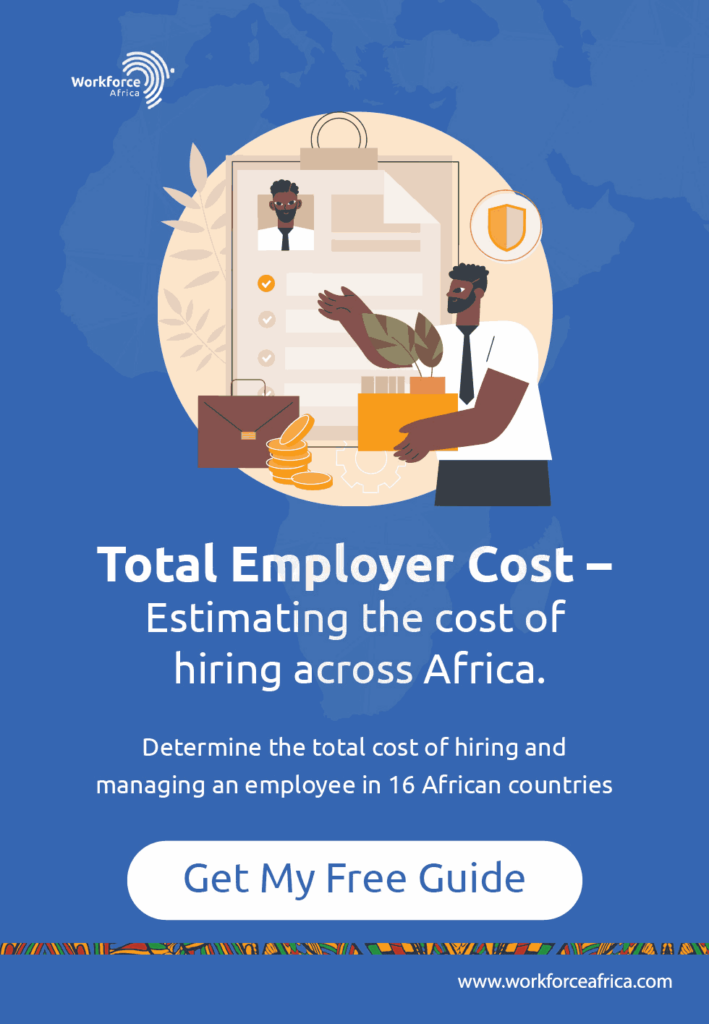

Managing payroll in Africa requires navigating diverse regulations, ensuring data confidentiality, and leveraging local expertise.
This article explores how global businesses can adopt flexible systems and comply with local laws to manage payroll effectively across the continent.
As businesses grow worldwide, they face handling international teams, with payroll management a significant challenge.
Dealing with global payroll challenges involves meeting various legal obligations and dealing with inefficient systems for organising payroll data.
Developing a smart strategy plan helps in smoothing out payroll processes in Africa, regardless of the country.
Understanding what is global payroll is crucial for companies expanding across Africa, as it ensures compliance with local employment laws while maintaining consistency across international operations.
Let's explore global payroll, some of the main challenges global businesses face when handling payroll in Africa, and how to tackle them.
worldwide. Components of global payroll are
You can consider the following options when selecting a payroll system for your global business initiatives.
Managing payroll internally across the globe means you're entirely in charge of hiring and paying your international staff.
However, this method is time-consuming, not cost-effective, and challenging to expand. Also, global businesses need to have enough resources to deal with this business operations model.
Utilise local vendors within each country. Decentralised global payroll involves entrusting payroll administration to local third-party providers in various countries.
However, this approach entails overseeing numerous vendors across different countries. This lacks uniformity and transparency and poses potential security hazards.
Use a single worldwide payroll provider that collaborates with local payroll vendors, managing all payroll operations centrally.
This approach integrates all payroll functions into a unified system, minimising mistakes and inefficiencies.
Businesses opting for a unified payroll provider in Africa should meticulously assess their choices to ensure the selected partner is dependable and credible.
Recommended Post: Managing Payroll in Africa: Outsourcing for Compliance & Growth
There are many payroll service providers out there that offer their services in one or even several countries.
Selecting a reliable payroll service provider is essential, as the choice of a payroll provider can go a long way toward meeting your needs.
Some challenges may often arise from limited options, varying quality of services, and compatibility with local regulations.
To manage this challenge, you have to conduct thorough research and evaluate providers based on their track record, expertise in African markets, compliance capabilities, and customer reviews.
Additionally, ensure clear communication and alignment of expectations with the chosen provider.
Each country in Africa has its own labour laws, tax regulations, and compliance requirements.
This diversity complicates payroll management, as the same process may not be applicable across different countries.
To comply, you must comprehend each nation's legal and regulatory requirementsas you discover how to pay foreign workers.
To address this challenge, maintain updated knowledge of local regulations, establish a network of legal experts or consultants in respective countries.
Implement a flexible payroll system capable of accommodating regulatory changes.
Transparent pricing is essential for budget planning and cost control. However, unclear cost structures or hidden costs can lead to financial surprises.
You can manage this challenge by seeking detailed cost breakdowns from payroll service providers, negotiating fixed pricing agreements where possible.
Also clarifying the scope of services covered under the contract.
Accurate data is fundamental for payroll processing. Challenges may arise from manual data entry errors, inadequate data validation processes, or system integration issues.
your payroll team must implement automated payroll systems with built-in validation checks.
Invest in employee self-service portals for data verification and updates. Also conduct regular audits to ensure data accuracy.
Safeguarding employee data is important to maintaining trust and complying with privacy regulations.
Challenges may arise from inadequate data protection measures, cybersecurity threats, or internal breaches.
You can mitigate this risk by implementing robust data encryption protocols and access controls.
Training employees in the best data security practices, and ensuring compliance with relevant data privacy laws, such as GDPR or local equivalents.
Vendor Management
Coordinating multiple vendors across different countries can be challenging, leading to communication gaps, service inconsistencies, and logistical issues.
Establish clear lines of communication, designate a central point of contact for vendor management.
Finally, implement regular performance reviews to monitor service quality and address any issues promptly.
Lack of Standardisation
The absence of standardised payroll processes across African countries complicates payroll management and increases the risk of errors or non-compliance.
Standardise payroll procedures where feasible, leverage technology to streamline processes, and establish centralised payroll hubs to ensure consistency across regions.
Lack of Transparency and Visibility
Limited visibility into payroll processes can hinder decision-making and accountability.
Enhance transparency by implementing real-time reporting dashboards, providing stakeholders with access to relevant payroll data.
Finally, fostering open communication channels between payroll teams and management
Different Currencies and Cross-Border Payments
Understanding what is global payroll is important as managing payroll across multiple currencies and facilitating cross-border payments can be complex and costly.
Your payroll team can utilise multi-currency payroll systems. That is capable of handling currency conversions.
Also, partner with reputable financial institutions for cross-border payment solutions and stay informed about foreign exchange regulations and market trends.
Time Zone, Cultural, and Language Barriers
Coordination across diverse time zones, cultural nuances, and language barriers can impede effective payroll management and communication.
To bridge communication gaps, an employer must foster a culturally sensitive and inclusive work environment.
leveraging virtual collaboration and communication technology, and provide necessary language support or translation services.
By addressing these challenges proactively and implementing appropriate strategies, organisations can streamline their global payroll operations in Africa.
This ensure compliance, and mitigate risks effectively.
Suggested Post: Payroll Trends: What Global Firms in Africa Should Know
Workforce Africa offers a comprehensive solution to the definition of global payroll and the challenges of managing payroll across the diverse African landscape.
By leveraging our expertise, we streamline payroll processes, ensuring accuracy, efficiency, and compliance with regional regulations.
With Workforce Africa, companies can confidently navigate the complexities of payroll management and drive business growth and success in the vibrant African market
Schedule a free consultation today to learn more about how Workforce Africa can help you with your payroll system,